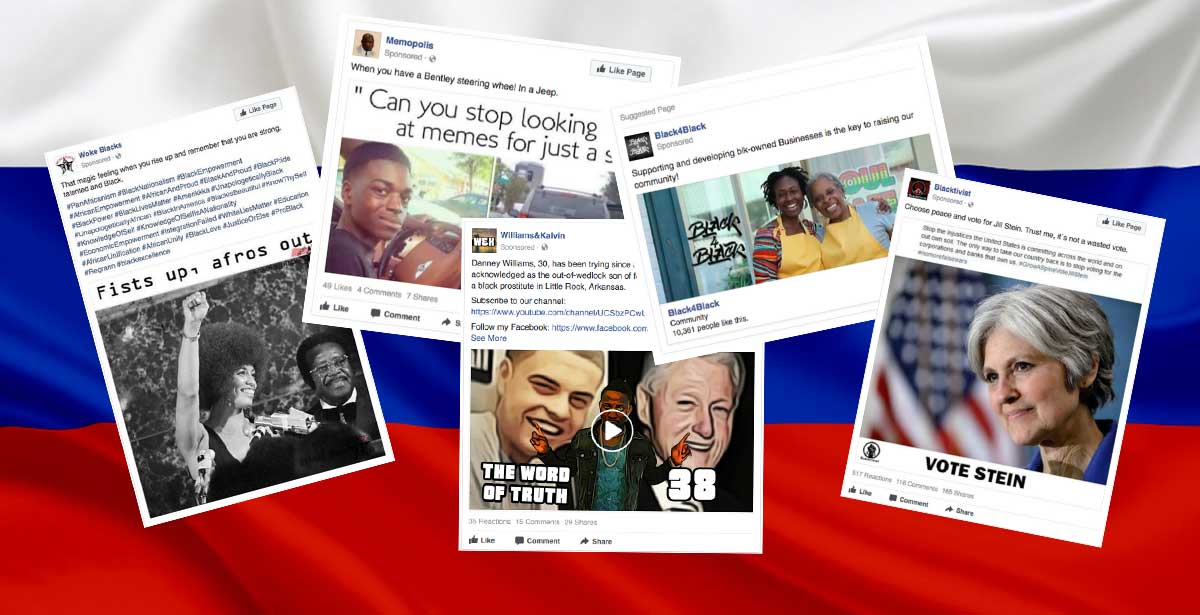In the wake of the 2018 election, our country is finally having an overdue conversation about voter suppression. It takes many forms — discriminatory voter ID laws, shady voter roll purges and racially gerrymandered electoral maps, just to name a few.
But over the past two years, we have learned of yet another threat to voters, and Black Americans in particular — this one from beyond our borders. In 2016, Russia attacked our democracy using cyber-attacks and a massive disinformation campaign via social media.
As Vice Chairman of the Senate Intelligence Committee, I’ve helped lead the investigation into Russian election interference efforts. Perhaps the most disturbing detail we’ve uncovered in our investigation thus far is that Russians specifically targeted the Black community to sow division and suppress voter turnout.
But in recent reports commissioned by our committee, researchers found that Russia’s efforts to target Black Americans were much more sophisticated and systematic than previously known.
In fact, we now know that the Black community was the top target of the Kremlin’s misinformation campaign. Russia employed an army of paid internet trolls who posed as Black Americans on 30 Facebook pages, with over 1.1 million total followers.
Our investigation found a troubling pattern of Russian operatives mimicking legitimate online organizing efforts taking place in communities of color. Russian-backed Facebook posts exploited the Black Lives Matter movement and pitted Americans against each other on issues including race, religion and gun violence. They attempted to build online relationships with legitimate Black media figures and outlets, and even tried to recruit unwitting Americans as Russian intelligence assets.
Using ads as well as organic content, they built their social media followings around political issues related to racial justice, as well as non-political issues like supporting Black-owned businesses.
But as the election approached, these accounts began to change their message. According to the reports, they started posting content pushing “several varieties of voter suppression narratives.” By the end, they were even posting memes encouraging “African Americans for Hillary” to stay home and “vote by text.”
Unfortunately, these racist efforts are not a new strategy for the Russians. During the Cold War, the KGB tried to spread "fake news" smearing Dr. Martin Luther King, Jr., and Russian intelligence officers were responsible for concocting the rumor that the AIDS virus was developed by the CIA to target non-whites.
But what’s different today is that social media makes it much easier to start and spread misinformation on a scale that the Soviets could never have dreamed of.
In that way, social media is truly a double-edged sword — the same online tools that in many ways gave rise to important movements like Black Lives Matter were also used by Russia to carry out information operations against Black Americans.
Defending against our adversaries’ attempts to exploit racial tensions via social media is an issue both of justice and national security. And it will take all of us — the federal government, platform companies like Facebook and Google, and the American people united together — to combat this threat.
Here are three steps we can take right now:
1. End domestic voter suppression and address injustices at home: The truth is, Russia’s racist propaganda efforts have long attempted to exploit real injustices and racial divisions here in the United States, and 2016 was no exception. So long as Black Americans’ civil rights are under threat from politicians here in the United States, Russia will seek to exploit that to its advantage. In this sense, making real progress on issues like voting rights, economic fairness, and criminal justice reform is not only the right thing to do — it is essential to our national security.
2. Combat social media misinformation and disinformation: Social media companies should work with Congress to develop common-sense regulations protecting users from foreign adversaries and other bad actors. I’ve put forward a number of proposals as a starting point. For example, I think folks have a right to know if an account they’re interacting with is a bot, or if someone posing online as Mark from Virginia is actually Boris from St. Petersburg.
3. Stand up to foreign cyberaggression abroad: We need to aggressively deter and respond to cyberattacks and information operations carried out by Russia and other adversaries. To that end, we should clearly articulate a society-wide cyber doctrine and be willing to defend ourselves in cyberspace. When foreign adversaries attack our democracy and our fellow Americans, there must be consequences.
Finally, we must deny Russia and other adversaries what they most desire — a further fracturing of our society and our democracy. At the end of the day, the best way to stand up to this cynical, disgusting attempt to undermine our democracy and suppress your vote is to continue making your voice heard at the ballot box and in the community.
Blavitize your inbox! Join our daily newsletter for fresh stories and breaking news.
